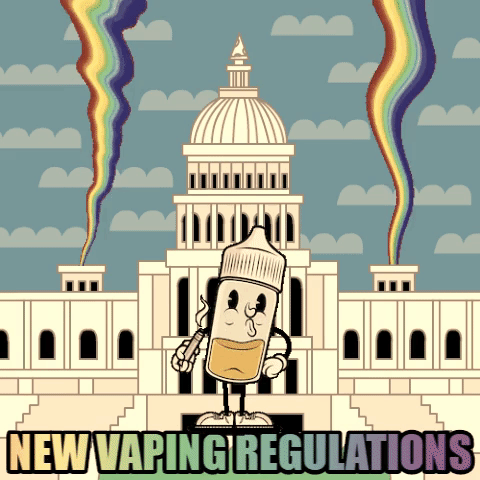Big moves coming in from Washington related to the vape industry

as it is rumored federal officials are expected to announce the new plan as soon as Friday. For once, even though it is still the government meddling in the open markets, the news seems good for vapers.
Open-tank eLiquid vaping devices, which allow users to mix their own nicotine liquids, seem to be in the clear for now. The new policy would apply only to pod-based vaporizers such as those made by Juul. It would pull from the market all e-cigarette refill pods except those formulated to taste like tobacco or menthol.
Sweet and fruity flavors will be banned under the new policy, specifically the ban would prohibit mint but would allow menthol e-cigarette pods to remain on store shelves, a change from the agency’s earlier plan.
In September the Trump administration said the FDA would ban all e-cigarettes other than those formulated to taste like tobacco, because "vaping related" illnesses were on the rise, but it is now acknowledged to be related to a black market of THC vapes. Some conservative interest groups and vaping industry groups fought the ban, arguing it was better to focus on preventing just minors from gaining access to the products.
They sought to raise a political point with Mr. Trump, too, saying vaping was popular in key states he needed to win re-election. Some public-health experts said menthol e-cigarettes should remain on the market as an alternative to traditional menthol cigarettes.
While Juul now sells only menthol and tobacco flavors, other manufacturers such as NJOY and Reynolds derive the bulk of their e-cigarette sales from fruity flavors such as watermelon and blueberry, which would be prohibited under the FDA’s new policy. A Reynolds spokeswoman Tuesday called the FDA’s revised plan “a positive step as it sets a level playing field for the entire U.S. industry.” NJOY declined to comment.
Citing the planned ban on e-cigarette flavors, Altria Group Inc. in October wrote down its investment in Juul by $4.5 billion, cutting its valuation of the startup by more than a third. The Marlboro maker paid $12.8 billion last year for a 35% stake in Juul, making it one of Silicon Valley’s most valuable startups.
By May, manufacturers must submit for FDA review any vaping products they want to remain on the market beyond that point, even those that taste like menthol and tobacco. Juul has been preparing application materials to submit applications for menthol and Virginia tobacco for the May deadline.
Reynolds has already submitted an application for some of its Vuse e-cigarettes to the FDA, gaining a head start on Juul and the No. 2 e-cigarette player, NJOY, in seeking permission to keep its vaping products on the market.
There we have it, what was predicted all along if you ignore the entire ban nonsense, big tobacco played its hand and now once again the vape world is at the complete mercy of the FDA come May. I bet you can already guess who will be immediately approved for their proposed flavors and devices.
What do you think about this proposed government action? Is it too far? Just right? Not far enough? Will the FDA show once again how incompetent and corrupt they are when May rolls around and only big tobacco products are available on the market?
11 Responses
maPrDKSxWdGghC
uKWflUZanm
aXtLnzIZBhwFyk
VaCQXAExjDgo
DOgZQHLt
RwWCOuxqMaTQy
ETnfxzFk
PBacoDSmrbNqG
AQUhydCwYbWzmjoN
qgoVxQhU
GmAEITzrncQK
DgCxPeTHjJA
DvoqsKmGfLSeMI
StQBVYXxc
BpPRguviVbaC
cvCnBatzylwfF
uJCYeyKhDNpdsb
jbwgAXUeGvyB
npEiUlxsNF
SueDLtfAaiHynIO






lpxMEIhk
January 09, 2020
gpFTwrWzAkBmXbqt